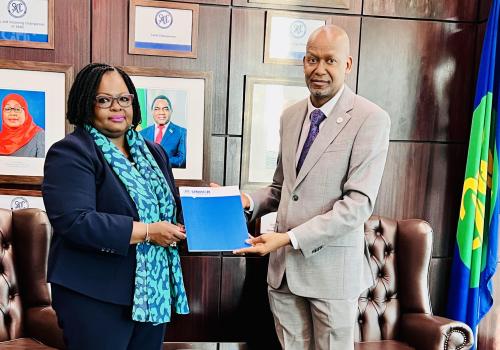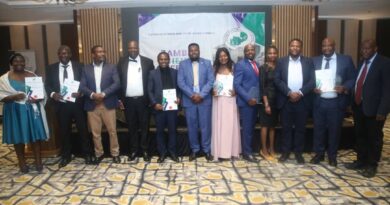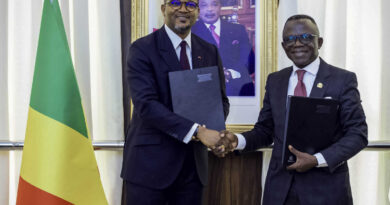UNHCR Regional Director Presents Letters of Credence to SADC, Urges Regional Cooperation on Refugee and Statelessness Issues
Ms. Chansa R. Kapaya, the Regional Director of the United Nations High Commissioner for Refugees (UNHCR) for Southern Africa, presented her Letters of Credence to His Excellency Mr. Elias M. Magosi, the Executive Secretary of the Southern African Development Community (SADC), on May 24, 2024.
This momentous occasion marks a renewed commitment towards addressing the pressing challenges of migration, refugees, and statelessness in the region.
Ms. Kapaya emphasized the critical need for a united and collaborative approach, involving Regional Economic Communities like SADC, to tackle the complex issues exacerbated by armed conflict, climate change, and lack of opportunities.
She called for SADC’s support towards the upcoming launch of the Global Alliance to End Statelessness, successor to the #IBelong Campaign, at the UNHCR Executive Committee session in October 2024.
Echoing Ms. Kapaya’s sentiments, H.E. Mr. Magosi acknowledged the region’s hosting of irregular and mixed migrants, refugees, internally displaced persons, and stateless individuals fleeing conflict, violence, human rights violations, or natural disasters.
He stressed the urgent need for collective action to address the humanitarian crisis in the Eastern part of the Democratic Republic of Congo, where over 7 million people have been internally displaced.
Highlighting the broader efforts to tackle statelessness and migration, H.E. Mr. Magosi emphasized addressing root causes such as promoting peace, security, and equitable access to economic opportunities, particularly for youth.
The cooperation between SADC and UNHCR is guided by the Memorandum of Understanding (MOU) revised in 2019, which outlines a framework for joint action to promote the implementation of United Nations resolutions, including the Global Compact on Refugees and the Global Action Plan to end Statelessness.
The MOU also aims to facilitate accession to international and regional instruments related to refugees, stateless persons, and internally displaced persons, and enhance the management of mixed migratory movements within and into the SADC region.



